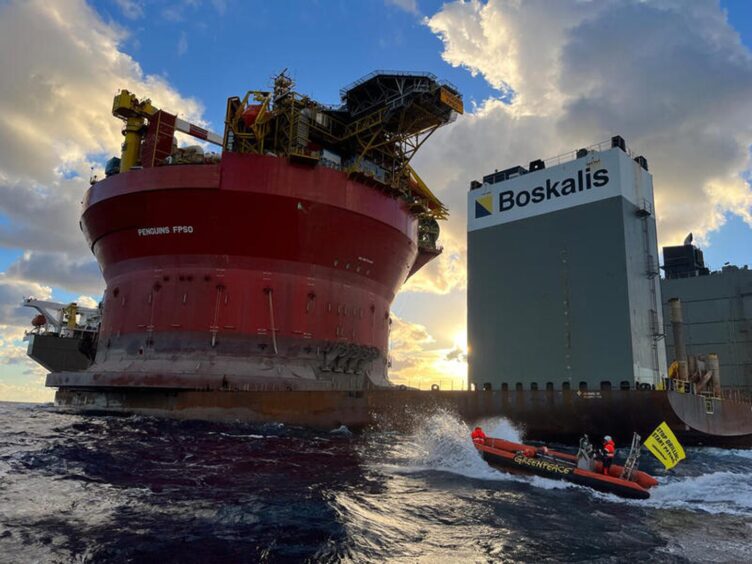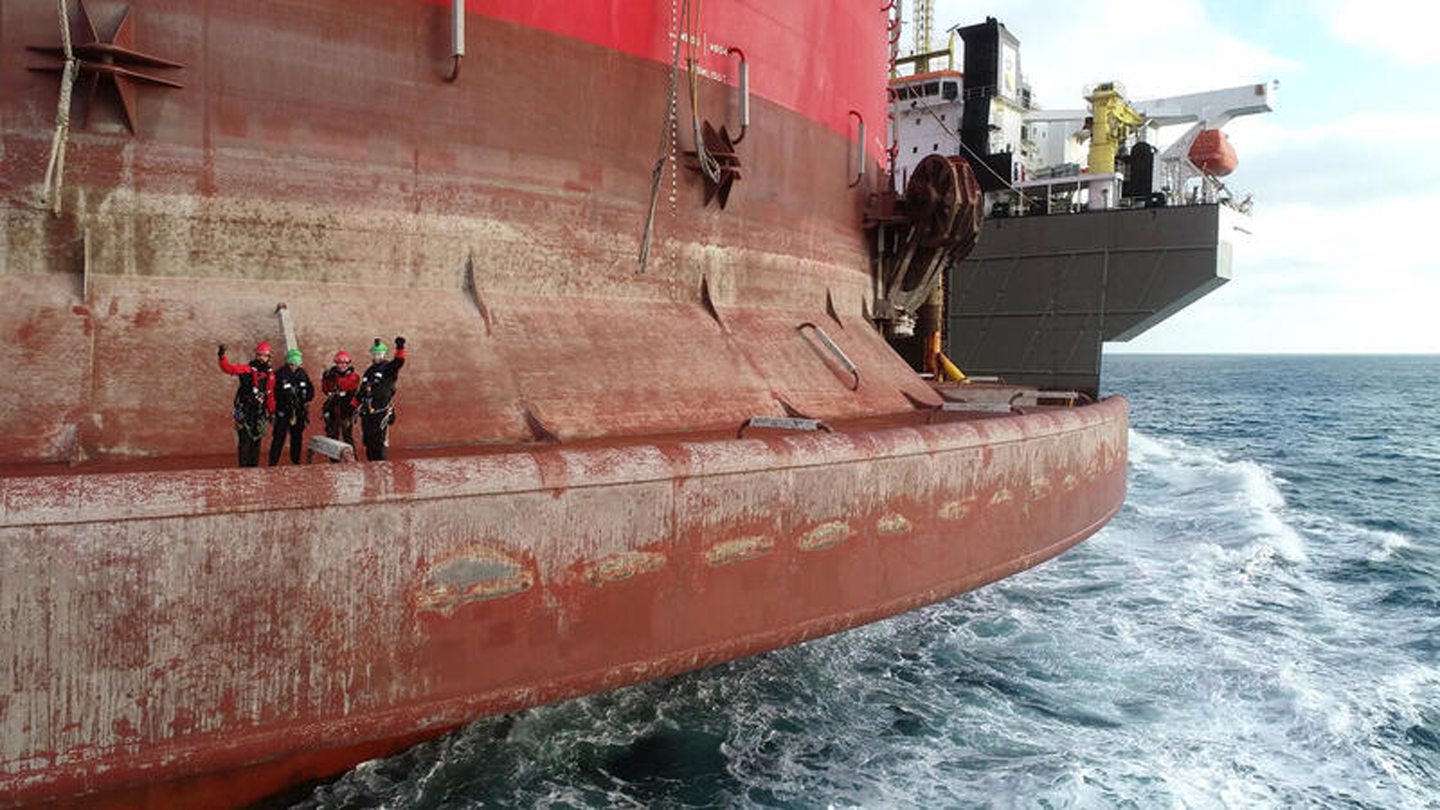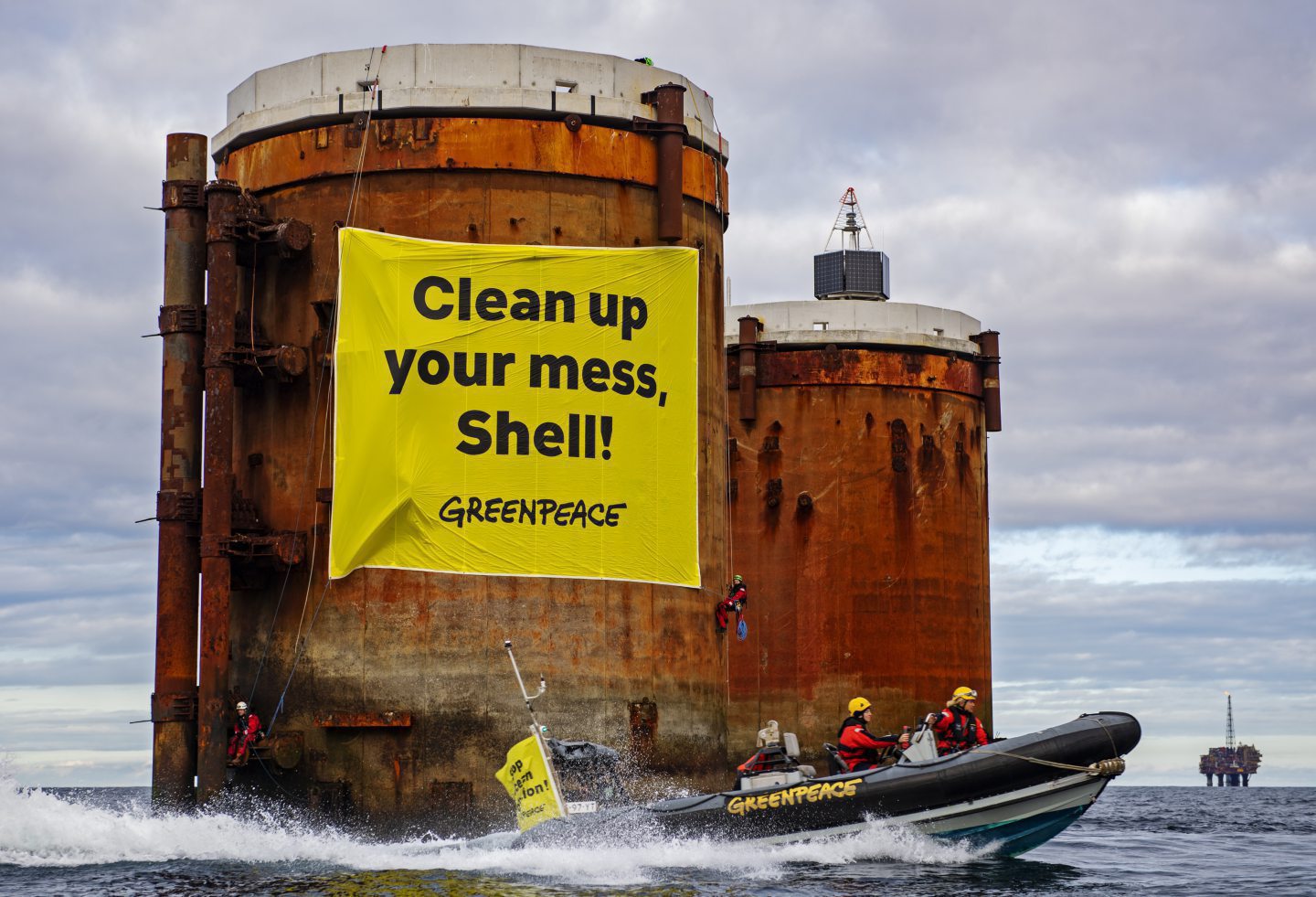
Environmental campaign group Greenpeace UK has raised over £1 million from supporters in response to a lawsuit from North Sea operator Shell (LON:SHEL).
Shell initiated the lawsuit in November last year after Greenpeace activists boarded its Penguins FPSO at the beginning of 2023 while it was in transit from China.
Documents seen by Energy Voice show the oil major and its contractor Fluor threatened to sue for a combined $8.6 million (£6.8m) in damages.
Shell has said it would settle for $1.4m if Greenpeace agreed to never attempt to board, damage, interfere with or obstruct “any other Shell equipment, installation, asset or vessel” at sea or in port going forward.
Greenpeace launched its Stop Shell Appeal in response, with the campaign gaining support from British celebrities and leading to 25,000 donations in nine months.
As part of the “irreverent campaign” against the oil giant, the group enlisted comedian Joe Lycett and delivered a tiny violin to Shell’s headquarters in London.
The environmental group said the lawsuit is “one of the biggest legal threats” any Greenpeace organisation has faced in its 53-year history.
But Greenpeace UK campaigner Philip Evans said the lawsuit “is only making us stronger”.
“Ordinary people have had enough of watching Shell make billions in profit from a commodity that’s driving energy bills up and fueling climate disasters around the world,” Evans said.
“Shell might have deep pockets, but the determination of our supporters runs deeper.”
Greenpeace said Shell initiated the “abusive” lawsuit to “silence criticism”, also known as a SLAPP (strategic lawsuit against public participation).
Legal campaign groups including The UK Anti-SLAPP Coalition have stated support for Greenpeace and called on Shell to drop the claim.
Greenpeace actions ‘unlawful’ and ‘dangerous’
Last year, Shell said the right to protest is “fundamental” but it must be done “safely and lawfully”.
“Boarding a 72,000 metric tonne moving vessel at sea was unlawful and extremely dangerous,” Shell said.
The firm said the legal costs of the court injunctions were “significant”, as was the cost for companies who had to deal with the action at sea.
“The safety of the protesters – as well as the crew – was paramount,” Shell said.
“Rightly, we did not hesitate to put in place measures to protect all people involved. Shell and its contractors are entitled to recover the significant costs of responding to Greenpeace’s dangerous actions.”
North Sea court action
This is the latest in a run of court action involving Shell and Greenpeace.
In 2019, London-listed Shell won a court order preventing environmentalists from going within 500 metres of its unmanned North Sea installations after protests at the Brent oilfield off Shetland.
Greenpeace has meanwhile launched a legal challenge against the UK government over approval of the Jackdaw project, a Shell gas development off Aberdeen.
The Jackdaw challenge has been bolstered by a recent Supreme Court decision, which could have implications for future drilling in the North Sea.
Shell is also facing a significant lawsuit of its own in a case brought by environmental campaigners in the Netherlands.
In 2021, a Dutch court ruled Shell must reduce its carbon emissions, crucially including scope 3 emissions, by 45% by 2030, compared to 2019 levels.
The London-listed oil giant is appealing the ruling, amid ongoing criticism as the company scales back its emission targets and energy transition investments.
Recommended for you


 © Supplied by Greenpeace
© Supplied by Greenpeace © Supplied by Greenpeace
© Supplied by Greenpeace